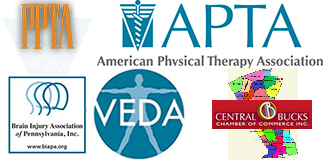At one time or another, we have all had a song that gets stuck in our head. Did you know that your favorite type of music or your favorite song could help you move better? For patients with Parkinson’s disease, this is absolutely the case. Try playing or singing your favorite upbeat song or pick a tune that makes you want to tap your feet – whether it be Frankie Valley, your favorite 90s boy band, or Baby Shark. Try it and see how you feel!

You use music when you dance, sing and sometimes just to help get you through your day. Research has discovered the benefits of listening to music such as improvement in mood and motivation, movement, rhythm, and clarity of speech. Music also requires the use of many senses including hearing, speech, memory, and movement. All of these are important to keep you moving and keep your brain active.
For patients with Parkinson’s disease, movements can oftentimes become smaller; walking can become a shuffle or feel like your stuck; your ability to speak can become less clear or not as loud as it used to be. Music can provide the same benefits of motivation and mood to all individuals but can also help with how fast or how big your movements can be for patients with Parkinson’s disease. Music can also help bring back that boom in your voice.
Music can act as both an internal and external hint for improving movement. External cues, such as listening to a metronome or your favorite song, are considered things outside of the individual to help encourage bigger or specific movements. There is also internal cueing, such as singing out loud or in your head, that individuals are able to do themselves to help with similar movements. Both external and internal cueing can help produce a rhythm that can increase how big you step or how fast you walk and can sometimes help with how consistently you move a certain way.
Recent research has shown that singing out loud or in your head can provide just as much benefit as listening to music. Muscles required for daily speech are the same muscle required for singing. Singing out loud can benefit volume or loudness and clarity of speech. It assists with breathing patterns beneficial for speech as well. With the holiday season quickly approaching, bring in the holiday spirit with a carol or holiday classic and sing it loud for all to hear. Everyone might just join you!
For those with Parkinson’s disease, exercise has been shown to help improve daily mobility, ease and speed of functional activities that may be feeling small or slower than they used to, and quality of life. Therapy is beneficial to help promote exercise and large amplitude movement, or movement that requires exaggerated size or intensity. This can help improve balance, walking, and daily functional activities. Incorporating personal interests, such as music, can help create the best environment to help with treatment, motivation, and intensity and will drive you to continue with your daily exercises.
Pick a song that moves you, and find out how big you can move!
